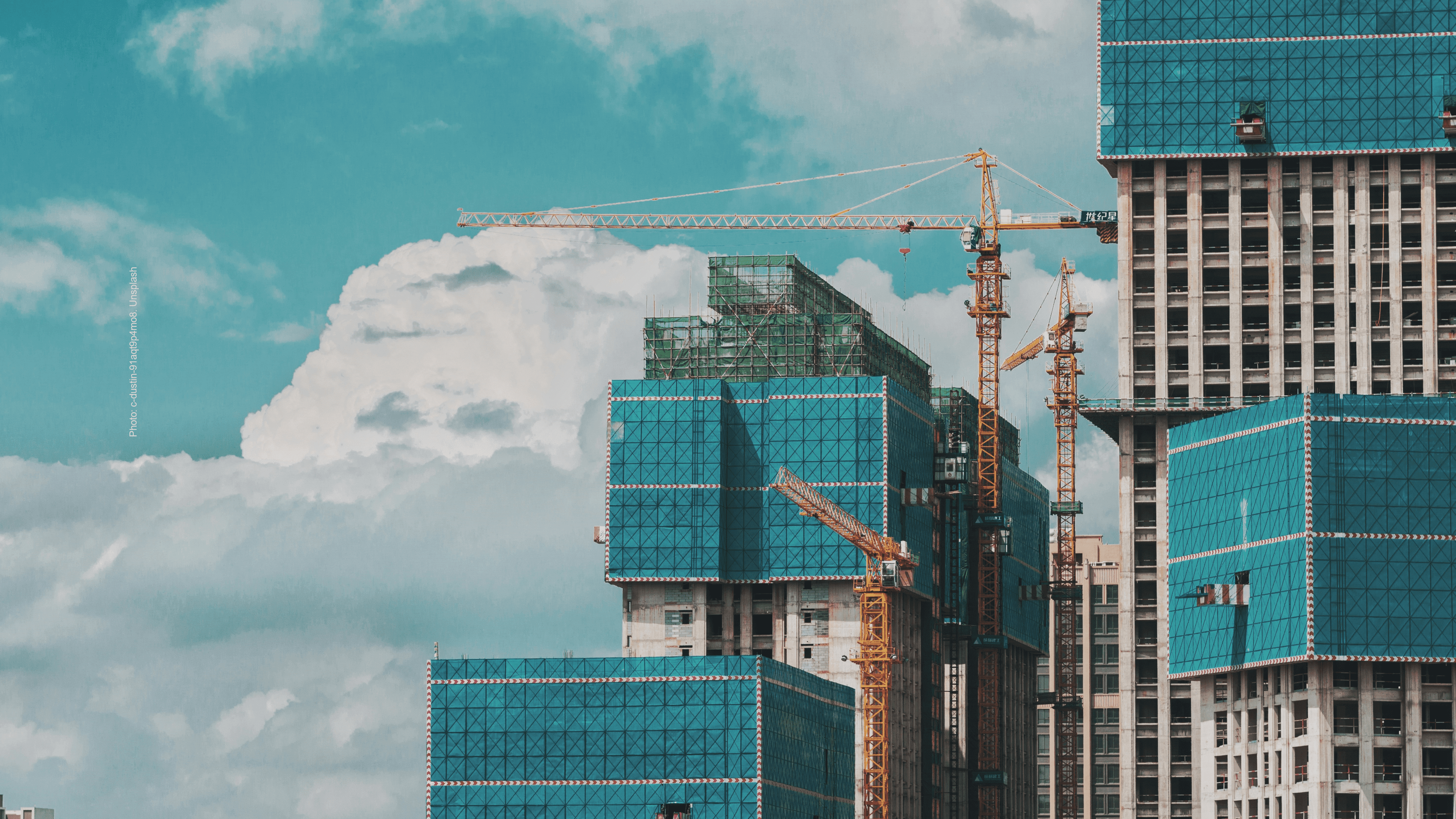This op-ed was originally published by the World Economic Forum
By Greg Munro, Director, Cities Alliance
COP28 has convened to address the daunting challenge of climate change, including a thematic focus on the built environment, emphasising the need for a breakthrough in mitigating the impact of the construction sector. Yet one critical aspect remains conspicuously absent from the discourse: the future of the approximately 1.1 billion people who live in informal settlements and urban slum areas.
Their reality is residing in dwellings often pieced together haphazardly, constantly facing the threats of extreme weather events and uncertain tenure.
As the world faces multiple and mutually reinforcing crises, how housing for the urban poor is (or isn’t) addressed will have dire consequences under the impacts of climate change.
To build sustainably for the future, our efforts must extend beyond climate-friendly —often expensive—materials and methodologies. After all, most of the built environment in the coming decades will be built by and for urban poor communities. Sustainable construction, therefore, requires a just transition—making it not only climate-friendly but also affordable, attractive, and attainable for the urban poor.
A sustainable construction approach is promising—however, it must be accompanied by equitable political frameworks. Circular economy principles can serve as a guideline. Drawing on the efforts of Cities Alliance’ working group on sustainable construction and the insights of UNEP’s Global Status Report for Buildings and Construction, we recommend three entry points for transformative change that consider sustainability in all its aspects.
- Environmentally sound construction: A pillar of resilience
According to UNEP, conventional building methods will consume nearly 80 per cent of the CO2 budget until 2050. To address this, sustainable construction must prioritise circular, low-carbon methods and materials—creating structures that mitigate climate change and withstand its impacts. This entails eco-friendly designs, resilient materials, local construction methods, and vernacular techniques.
For instance, in Malawi, the German Development Cooperation supports climate-friendly brick production, using waste materials from the tobacco and food industries. These bricks emit 85 per cent less CO2 and consume 85 per cent less energy than conventional methods.
Embracing a circular economy approach in informal settlements involves not only sustainable materials but also techniques allowing incremental home improvement. This, combined with capacity-building, ensures the urban poor can gradually build resilient and sustainable homes.
- Economically sound solutions: Circular economies and affordability
Affordability is pivotal for the success of sustainable construction in informal settlements, particularly in the Global South, where importing low-quality materials harms the environment and contributes to insecure housing. Shifting towards circular economies and regulating material flows can prevent the Global South from being a dumping ground for undesirable, unhealthy building materials. Localising the production of construction materials and fostering local value chains not only creates job opportunities but also reduces environmental strain, promoting economic justice.
Addressing gender disparities is integral to achieving economic sustainability in sustainable construction.
Female-headed households, often below the poverty line, bear the brunt of high construction material costs, exacerbated by the gender pay gap. A just transition must incorporate strategies to make economic sustainability inclusive, bridging existing gender gaps.
For example, Build Change collaborates with microfinance institutions in the Philippines, supporting affordable and sustainable incremental housing improvements for low- and middle-income families, enhancing resilience against extreme weather events.
- Socially sound strategies: Nurturing a just transition
With over a billion people residing in informal settlements, the challenges are immense. Sustainable construction often neglects social dimensions, worsening poverty and insecure living conditions. A just transition recognizes the intersection of urban informality and climate change, prioritising equity and placing human rights at the core of decision-making.
Self-help housing, crucial for the construction and regeneration of local neighbourhoods, can lack environmental sustainability. Assisted self-help housing, guided by sustainability and circular material use, bridges affordability and environmental responsibility gaps. In Buenos Aires' Barrio 31, a gradual, subsidised approach showcases inclusive urban development, including the renovation of public spaces and housing units, and grants land titles to residents, fostering a sense of ownership and stability within the community.
Recognizing the disproportionate intersection of urban informality and climate change impacts in informal settlements, climate justice ensures that the benefits of sustainable construction are equitably distributed among communities. Understanding how people in informal settlements use building materials and the relationships shaping the value chain is also essential.
A new narrative of a just transition in sustainable construction
In conclusion, we envision a future where secure tenure is the norm, sustainable companies thrive, and communities embrace affordable, attractive building materials. Microfinancing tools empower residents to construct their aspirations bit by bit, while political representation ensures that voices are heard, and security prevails even in the face of extreme weather events.
This transformative change is crucial, especially considering that most of the urban infrastructure needed by 2060 is yet to be built. This presents a monumental opportunity for prioritising sustainable construction practices and ensuring that the urban poor are not left behind. For example, France and Morocco are championing the Buildings Breakthrough approach to collectively achieve near-zero emissions and resilient buildings worldwide as the new normal by 2030.
As COP28 progresses, let's expand the dialogue to include the narrative of a just transition in sustainable construction.
It's not merely about constructing buildings; it's about constructing a future where housing is a pillar of justice, resilience, and sustainability.
This journey necessitates a collective commitment, a collaborative effort, and an unwavering dedication to building a better, more sustainable future for all.

Greg Munro






